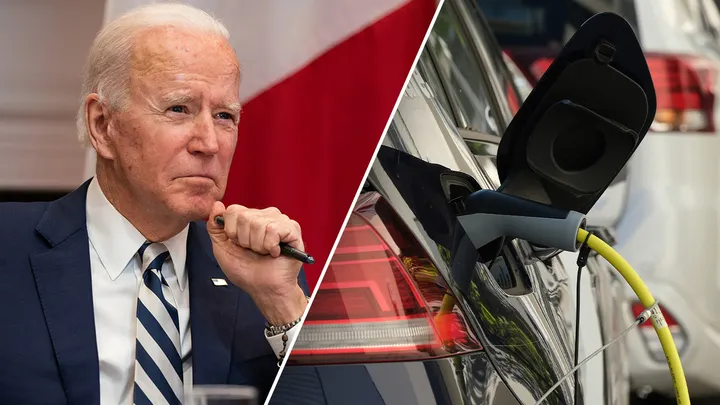Biden Administration Releases Guidance on Electric Vehicle Tax Credits under 2022 Inflation Reduction Act
the Biden administration released long-awaited guidance on Friday regarding the eligibility criteria for generous tax credits under the 2022 Inflation Reduction Act (IRA). The guidance, issued by the Treasury Department in collaboration with the White House Office of Clean Energy Innovation and Implementation and the Energy Department, focuses on defining “foreign entities of concern” (FEOC) and sets standards for EVs to qualify for the $7,500 federal credit.
Starting in 2024 and 2025, the IRA prohibits EVs from receiving the federal credit if they are assembled with battery components or critical minerals sourced from a foreign entity of concern. The Treasury Department’s guidance defines an FEOC as an entity “incorporated in, headquartered in and operating within” specific nations: China, Russia, North Korea, and Iran. It also states that a covered nation’s government is considered an owner of an entity if it controls 25% or more of the entity’s board seats, voting rights, or equity interest.
Treasury Secretary Janet Yellen expressed enthusiasm about the impact of the Inflation Reduction Act, stating, “The Inflation Reduction Act has unleashed an investment and manufacturing boom in the United States, and since President Biden enacted the law, ecosystems have developed in communities nationwide to onshore the clean vehicle supply chain.”
President Biden’s goal of ensuring 50% of car purchases are electric by 2030 aligns with the administration’s aggressive regulations targeting future gas-powered cars. White House clean energy czar John Podesta emphasized the administration’s commitment to strengthening domestic industries, saying, “Thanks to the Investing in America agenda and today’s important guidance from Treasury and the Department of Energy, we’re helping ensure that the electric vehicle future will be made in America.”
However, the guidance has sparked concerns about potential loopholes that could allow Chinese firms linked to the Chinese government to indirectly benefit from taxpayer subsidies through joint ventures, investments, partnerships, and licensing deals with U.S. companies. Senate Energy and Natural Resources Committee Chairman Joe Manchin urged the Treasury Department to maintain strict standards for FEOCs to safeguard American energy security.
To address industry concerns, the Treasury Department created a new multi-year exemption, excluding “non-traceable battery materials (and associated constituent materials)” from the determination of FEOC compliance. Without this exemption, the EV tax credit might have been impractical, according to the Alliance for Automotive Innovation.
China currently dominates the EV supply chain, presenting a challenge to President Biden’s goal of transitioning the U.S. transportation sector to EVs and increasing domestic auto industry jobs. China produces a significant percentage of lithium-ion batteries, cathodes, anodes, and critical minerals vital for EV batteries.
The guidance also outlines other requirements for automakers to qualify for tax credits, including the sourcing of critical minerals and battery components from eligible nations and meeting assembly and cost criteria. EVs that meet these criteria, along with the FEOC rules, are eligible for the full $7,500 credit, while those meeting only one requirement qualify for a $3,750 credit.
The guidance is part of the administration’s broader efforts to encourage domestic EV production and address national security concerns associated with foreign entities’ influence in the U.S. electric vehicle market.






